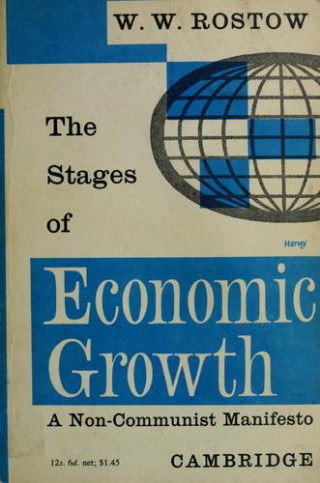After reading The Stages of Economic Growth, an American could come away convinced that global poverty and economic development were challenges on par with the arms race. Rather than thinking of foreign affairs as merely a grand chessboard, Rostow insisted, U.S. policymakers should aim the country’s resources at jump-starting other countries’ internal evolutions—a process that would essentially reverse-engineer the route to success that the United States and other industrialized societies had traversed since the eighteenth century. In the end, most of the assistance programs that were born in Rostow’s era, from the Peace Corps to the U.S. Agency for International Development (USAID), bore his stamp. But in the drive to bring the Third World up to the level of the First, Rostow believed, Americans could take comfort in one deep truth: that ultimately history, common sense, and human nature were on their side. Consumerism would enable social transformations that, sooner or later, would increase the likelihood of global convergence with the values, interests, and preferences of the United States.
For more than half a century, the worldview that Rostow articulated has remained a mainstay of American thought at the intersection of foreign policy and political economy. It still influences foreign aid programs and democracy assistance. It is evident in Americans’ sense of strategic disappointment and bafflement—at the direction of Russia since the end of the Cold War, at the resurgence of right-wing nationalism among European allies, at the renewed appeal of nonalignment among middle powers and poorer countries. The tenets of modernization theory even inform the analysis of domestic politics in the United States. Seven years after the numb bewilderment of election night 2016, American liberals and moderate conservatives still view the phenomenon of Donald Trump as an atavistic throwback to what Rostow called “traditional society”: regional economic backwardness, social stagnation, and, as he put it, “the inaccessibility of modern science, its applications, and its frame of mind.”
More than any other intuition or outlook, modernization theory still has the greatest claim to being a genuine Washington consensus. “U.S. foreign policy is rooted in a belief that the way to lasting peace and prosperity is actually to integrate diplomacy, defense, and development, the three Ds,” the USAID administrator, Samantha Power, said during a trip to Fiji in August. Yet in an age of renewed superpower competition and global realignments, the task for American thinkers and doers is to reimagine what is taken for granted about how societies work internally, how they change, and how—even whether—external actors can influence the process.
